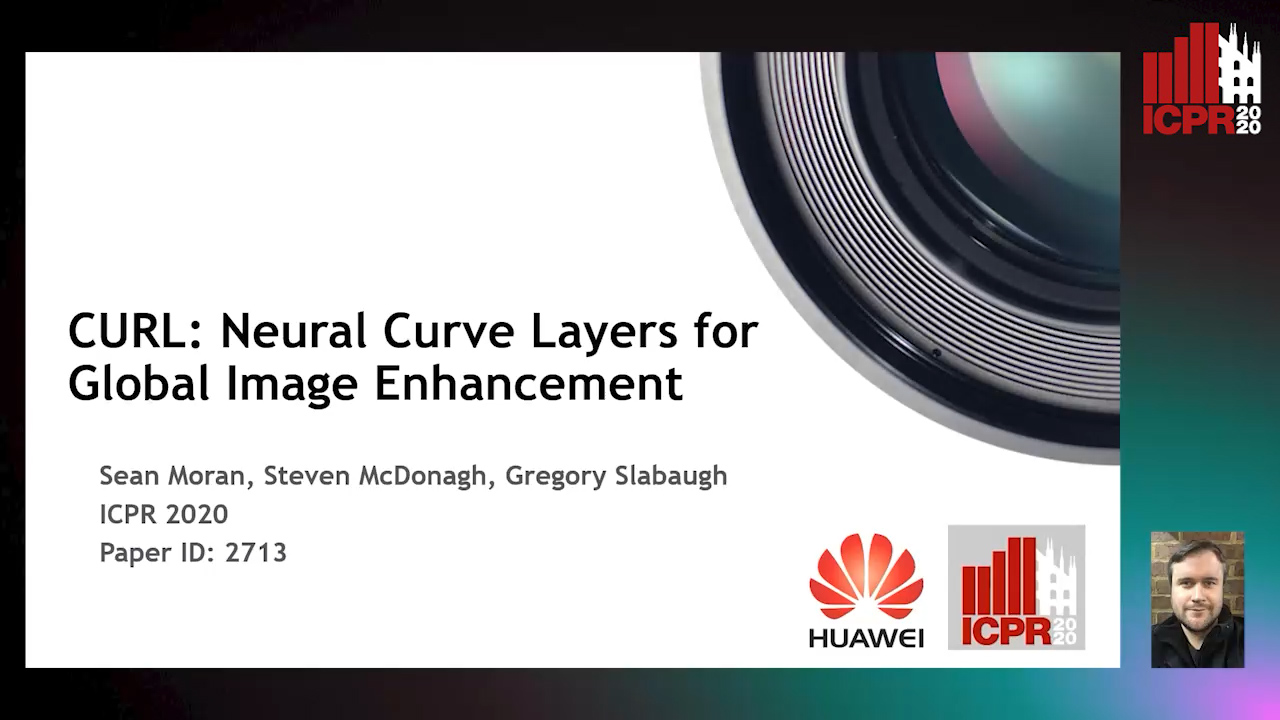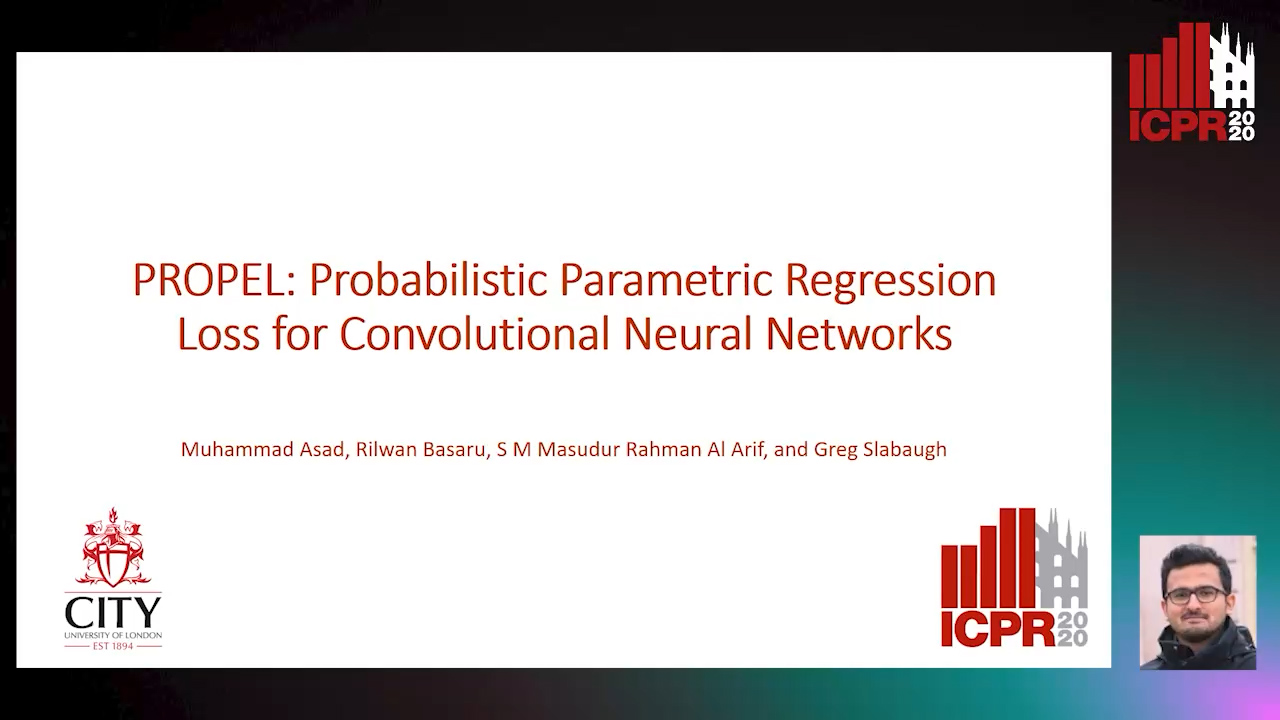Greg Slabaugh
Papers from this author
CURL: Neural Curve Layers for Global Image Enhancement
Sean Moran, Steven Mcdonagh, Greg Slabaugh

Auto-TLDR; CURL: Neural CURve Layers for Image Enhancement
Abstract Slides Poster Similar
PROPEL: Probabilistic Parametric Regression Loss for Convolutional Neural Networks
Muhammad Asad, Rilwan Basaru, S M Masudur Rahman Al Arif, Greg Slabaugh

Auto-TLDR; PRObabilistic Parametric rEgression Loss for Probabilistic Regression Using Convolutional Neural Networks